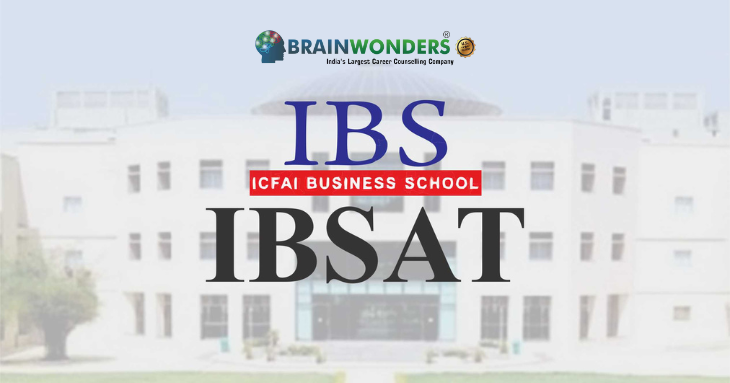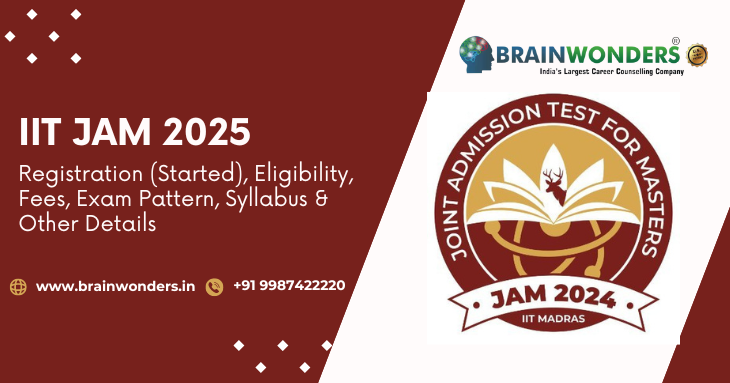

Take Brainwonders Career Test and make the right decisions for your college and course ahead
Let your unique personality, strengths, and traits guide to make the best decdision of your life!
Blog
30 May,2023 | By Brainwonders
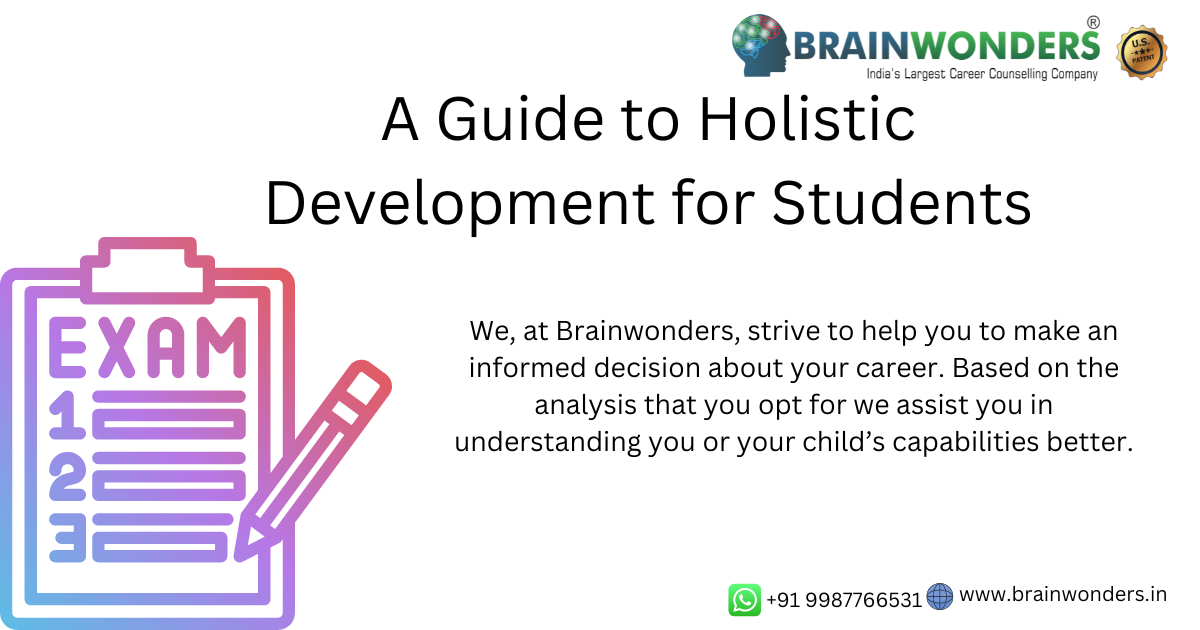
"Our bodies and each system within should be treated as a whole, not as a collection of its parts. Holistic Health addresses the mind, body, and spirit.
It searches for the underlying symptoms, rather than simply covering them up with medications, and it allows you to be HEALTHY".
~ Michael Adams
What Michael Adams said about holistic development is more relevant in the present era because most people consider working only on one or two aspects of their life, neglecting the rest.
Even for students, striving for academic excellence can no longer ensure success and happiness in life and career. The educational curriculum must emphasize in such a way that it helps every child to find their potential. For this, understanding and applying the concept of holistic development is of primary importance.
I have been continuously speaking about holistic development, and a flurry of questions, such as its meaning, importance in a student's life, etc., might be rushing through your mind. So, here is a comprehensive read that sounds up Holistic development in students, addressing all your concerns.
Let's start by understanding.
In the simplest terms, holistic development in English means a person's social, emotional, physical, mental, and intellectual growth. Fusing this term in education changes its meaning to focus on the complete development of a child's growth, not just academic advancements.
It aims at the development of abilities physically, cognitively, socially, emotionally, and intellectually. All these abilities are co-dependent on each other. For example, a child responds to a teacher's scolding by feeling the sensation (biological), understanding the motive (cognitive), and reacting accordingly (socio-emotional).
Recommended Read:
Why the Aptitude tests are very much important in the modern-day requirement system?
It involves the skills of persuasion, active listening, delegation, and stewardship, among others. The person lacking this skill can cause awkwardness.
Social skills facilitate interaction and communication with others. They include verbal and non-verbal communication, such as speech, facial expressions, gestures, and body language.
Eight social skills which must be taught to kids either by their parents or by their teachers include:
Know more about your strengths and weaknesses by SWOT Analysis set by Brainwonders. Individuals use this test not only to determine their strengths and weaknesses but also about available opportunities and related threats.
.Holistic development is essential because of the following reasons:
It has been proven that children learn quickly and adapt themselves faster to different conditions in their juvenile phase. Thus, early age is considered the best time to teach them about everything that will help them develop their personality.
Every process commences with setting a clearly defined and understood strategy, as it sets the mission and vision of the future. It establishes a charter that covers all areas of development, including the detail of the program set, which provides the training, who will manage the function, etc., and then communicates with the organization.
Providing an environment cultivates the mindset of students where they not only have a strong desire to become better but also share their achievements with their peers. Teachers and parents must develop behaviors of rewarding the students when they accomplish a task to motivate them for further achievements.
Learning and development must go hand in hand with talent management. Teachers must lay out a framework of training designed according to every student's demands, which will help them to advance in their lives.
By measuring and evaluating, teachers can find out whether the set strategies are working for their students or if the curriculum needs some re-evaluation. For the analysis of changes, some checkpoints are used by the teachers, such as:
A child's holistic development is incomplete until every aspect of a child's personality development is not considered. Thus, targeting holistic development may require you to keep the following points in mind:
Cognitive development means how children think and figure things out. It is related to the development of the brain, which in other terms, means that it is the development of problem-solving skills and dispositions. Cognitive development begins as soon as the child is born and can distinguish various sounds at six months. As parents, you can promote the cognitive development of your child by interacting daily with them in the following ways;
As parents, are you curious about your child's IQ level? If - Yes, then you have probably landed at the right place. Visit our site, Brainwonders, and apply for an IQ test. Our experts will guide you with the procedure and give some secret tips to enhance it.
Language development begins with sounds and gestures, followed by childish babbles, words, and sentences. Language development is an integral part of upbringing. Development of the brain takes place rapidly in children, so it becomes essential to teach them how they speak before they turn five years of age.
Social-emotional development of a child includes the expression and management of emotions and the ability to establish positive relations with others. Infants express, experience, and perceive emotions before they fully understand them. In an attempt to learn their feelings, children develop skills that connect them with their peers, teachers, and communities, which helps them to improve their interaction; they become capable of identifying their feelings and can accurately read what others feel and relate to them.
These childhood interactions lay the foundation of their future interactions, and those children who can effectively suppress their negative emotions, such as anger, stress, jealousy, etc., are bound to have better job opportunities in the future.
Physical development is one of the critical domains of everyone from the infant to adult stage. It relates to growth and skills in the body, including the brain, muscles, and senses. They are filled with beast energy which is necessary for neural connections, required for overall holistic growth. Parents, teachers, and caretakers must encourage toddlers to develop gross and fine motor skills, keeping their security in mind. When they feel secure, they can use their brains, muscles, and senses to explore the world around them. Moreover, the development of physical bodies keeps them healthy and fit and strengthens their immune system.
Sagacious competence means having the ability to sound good judgments. It encompasses the following points:
On encircling all the points, it can be concluded that holistic development far outweighs the single-sided approach toward academic excellence. An education system helps a child to understand his emotions simultaneously with the knowledge of building healthy and functional relationships with others.
This type of system can boost the morale of students, which motivates them to achieve greater heights in the future.
Parents must seek expert guidance before subscribing to unclear methods of developing their children. Not all children respond to similar procedures, and even if it may prove beneficial for one aspect, others might end up getting harmed.
So, having a specialist by your side is better than risking it all on a whim. You can find the best of all experts on one platform, i.e., Brainwonders, which has specialized counsellors trained to provide you with the most helpful advice and unblock the mental barriers you have laid upon yourself.
Answer: Holistic Development is the practice of nurturing an individual’s physical, mental, emotional, and spiritual well-being in a holistic and interconnected way. It includes programs like yoga, meditation, and nutrition to help individuals reach their full potential.
2. How does Holistic Development help people?
Answer: Holistic Development helps people in numerous ways. Physically, it can strengthen the body and reduce stress. Mentally, it can provide clarity and focus. Emotionally, it can help individuals recognize and manage their emotions better. Spiritually, it can help people develop greater awareness and connectedness with a higher power.
3. What are the benefits of Holistic Development?
Answer: The benefits of Holistic Development are vast. It provides physical, mental, and emotional balance and can improve concentration, and decision-making skills, increase resilience and even enhance creativity.
4. What types of activities are included in Holistic Development?
Answer: Types of activities included in Holistic Development can range from physical practices like yoga or aerobics to spiritual traditions such as meditation, prayer, or mindfulness. Furthermore, nutrition and lifestyle changes are often suggested as part of a holistic approach.
5. Who should consider engaging in Holistic Development?
Answer: Anyone looking to improve their overall well-being and achieve greater balance in their life could benefit from Holistic Development. This practice is especially beneficial for those seeking to reduce stress, reconnect with their spiritual self, or generally feel better about themselves.
Take Brainwonders Career Test and make the right decisions for your college and course ahead
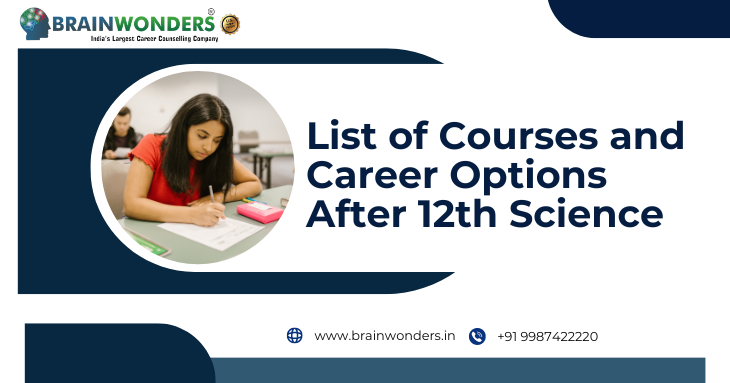
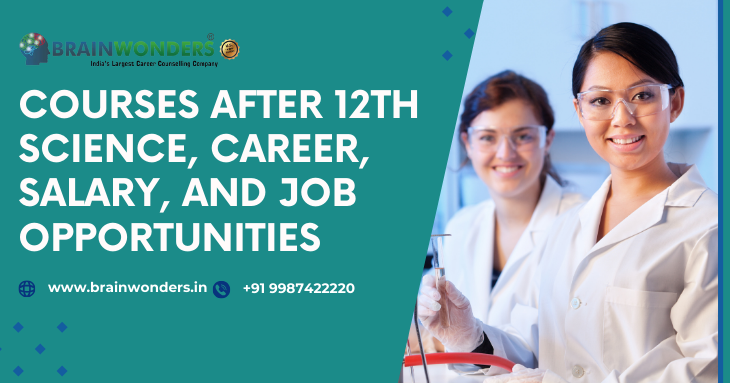
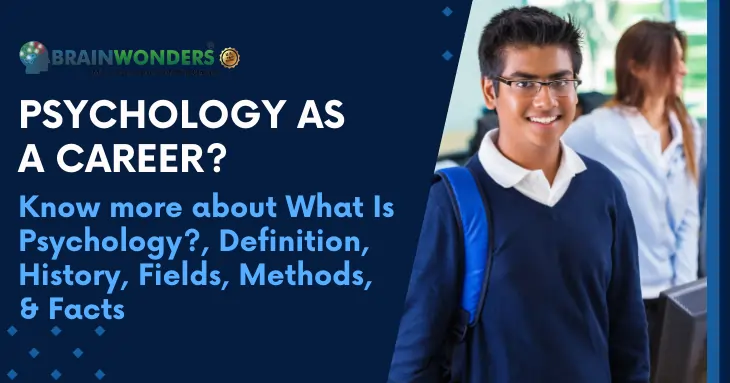
,_Syllabus,_Pattern,_Old_Question_Papers.png)
